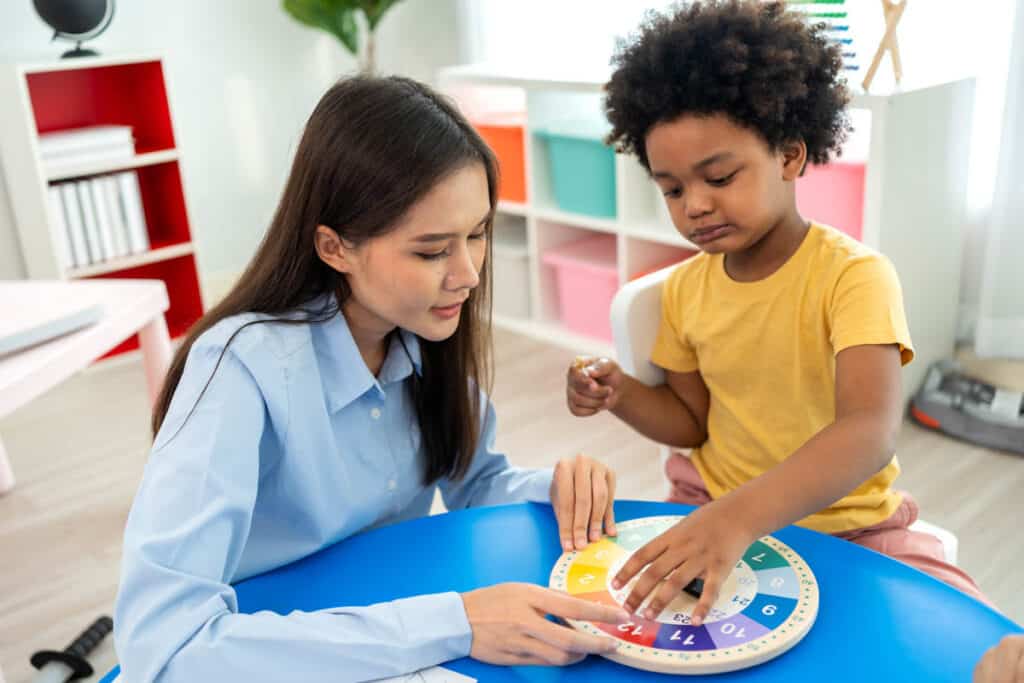When your child is struggling in school—whether it’s with focus, emotions, behavior, or learning—you might be wondering where to turn for help. Psychological testing, especially psychoeducational assessments, can offer valuable insight into what’s going on and how best to support your child. As a licensed school psychologist in both California and Florida, I specialize in these kinds of assessments, and I’d love to help you better understand what this process looks like and how it can benefit your child.
What Is Psychological or Psychoeducational Testing?
Psychoeducational testing looks at how your child learns, processes information, and handles emotions and behaviors. It helps us identify a child’s strengths and weaknesses so we can better support their educational and emotional needs. These evaluations often include:
- Cognitive assessments (sometimes referred to as IQ tests) are used to explore how your child thinks, solves problems, and processes information.
- Academic achievement testing to measure how your child performs in reading, writing, and math compared to other children their age across the country.
- Social-emotional and behavioral screenings to understand any emotional or behavioral challenges that might be interfering with their learning or school experience.
It’s not just about finding problems—it’s about understanding your child’s unique brain and how we can set them up for success.

Who Do I Work With?
I work with children from preschool through 12th grade, and in some cases, up to age 21 if they are still receiving special education services. My passion is working with neurodivergent children, especially those with autism or ADHD. I believe in a collaborative, strengths-based approach that supports the whole child, not just a diagnosis or a score.
What Happens During the Assessment?
The assessment process includes several parts:
- Standardized testing, which may be done remotely or in person on weekends.
- Parent interviews to understand developmental history, current concerns, and goals.
- Collaboration with school teams (if permitted by the family) to understand how the child is doing in the school environment.
- Observations and referrals if I notice signs of challenges that fall outside my scope, such as significant anxiety or mood disorders.
While I focus on how a child’s learning is being affected by cognitive, behavioral, or developmental challenges, I do not diagnose conditions like depression or bipolar disorder. For those, I work closely with clinical psychologists who can provide more in-depth diagnostic assessments.

When Should You Consider an Evaluation?
If you’re noticing any of the following in your child, it may be time to consider a psychoeducational evaluation:
- School refusal or extreme anxiety about going to school.
- Behavioral issues such as frequent outbursts, defiance, or trouble staying seated.
- Academic struggles that don’t seem to improve despite extra help.
- Questions about giftedness or a need for more challenging academic material.
Sometimes, parents and therapists notice signs of ADHD, autism, or a learning disability during regular therapy sessions, and those signs often show up in school as well. That’s when it’s helpful to have a comprehensive evaluation to get the full picture.
How Do Results Help?
Once the evaluation is complete, I provide a clear, detailed report and meet with the family to explain the results in everyday language. From there, I can:
- Help families understand their child’s needs and strengths.
- Recommend specific interventions or strategies.
- Advocate at school meetings to ensure the child gets appropriate accommodations.
- Help families access scholarships or resources for therapies or services.
- Provide gifted testing for students working well above their grade leve

Costs, Insurance, and Accessibility
I know that cost can be a barrier for some families. That’s why I offer a free initial consultation—so we can talk about your concerns, explain the process, and decide together if this is the right step. Evaluations typically range from $350–$1500, depending on the complexity of the case. For example:
- A gifted evaluation is more straightforward and costs less.
- An autism evaluation is more comprehensive and involves multiple tools, which may place it on the higher end.
Let’s Partner to Support Your Child
Whether your child is struggling in school, showing signs of neurodivergence, or simply needs to be challenged more, a psychoeducational evaluation can be a game-changer. My goal is to empower families, collaborate with schools, and advocate for children so that every child gets the support they need to thrive.
Have questions or want to schedule a free consultation? I’m available via phone and email. I’m here to help!
Let’s Partner to Support Your Child
Contact Lisa Perez, School Psychologist
📞 Phone: 239-537-9646
📧 Email: admissions@therapytreatmentteam.com
🌐 Serving families in California & Florida, with remote and weekend in-person options available.

Lisa Perez
Ed.S., Licensed School Psychologist
I am Lisa Perez, Ed.S., a Certified School Psychologist through the Florida Department of Education and a Licensed School Psychologist through the Florida Department of Health, as well as the Board of Behavioral Sciences in California. With 8 years of experience working with school-age children from Pre-K through 12th grade (ages 3 to 22) in Florida and California, I bring a wealth of knowledge to my practice.
















